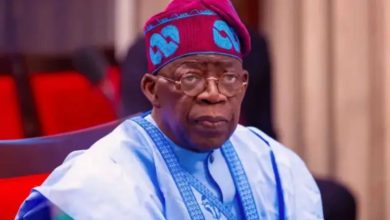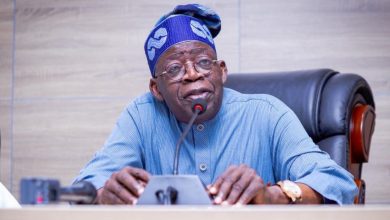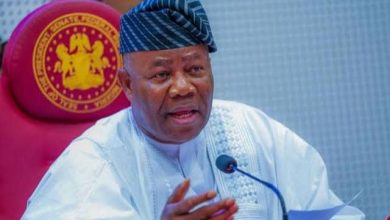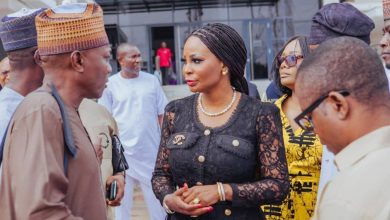
The Niger Delta Development Commission (NDDC) probably has made more news in recent times than what it used to be previously.
Two of the dominant reasons for that have been the man that now oversees that Commission and the call for forensic audit of the money-spinning entity. There have been questions about how NDDC makes money, such that those appointed to oversee it are considered highly favoured.
Conversely, in view of recent events, people are asking; How or where does the NDDC get its funds from, such that there appears to be enough and to spare, with the incumbent Minister sarcastically describing it as an “ATM ”?
Could the NDDC have a hidden vault of gold from which it draws with an open check?
Investigations have shown that, statutorily, the Commission attracts equivalent of 15 percent of the monthly statutory deductions from federation accounts of all member States of the NDDC. This is seen as basic contribution of the Federal Government to the States. Whereas the federal government does not monitor how these monies are expended, the Commission is expected to run on a budget within each fiscal year.
In one of his briefs, the immediate past Minister of State, Petroleum Resources and former Managing Director of the Nigerian National Petroleum Corporation (NNPC), Mr. Ibe Kachukwu, had disclosed that, from 2006 to 2016, an amount in the region of over S40b was paid to the NDDC and States in the Niger Delta from the statutory 13% derivation formula.
If the period is extended a little backwards to 2004 and few steps forward to 2019, findings showed that much more has been received.
International Oil Companies (IOCs) operating in the Niger Delta also have some financial obligations to the cash cow that the region has become. Hence, 3 percent of the total annual budget of the IOCs operating onshore and offshore services, including those dealing on gas, is usually deducted as part of funds for the NDDC. That means that oil and gas giants like Shell, Total, Mobil, Agip, NLNG pay 3% of their total budget to the NDDC.
This further implies that from year 2000 when the Commission was established with the financial commitments clearly defined, the Commission has been collecting the lump sums, except in instances of default by the companies who are said to have delayed or failed to pay at certain times.
Accordingly, if all monies paid by the Federal Government and IOCs were to be summed up, the amount would run into trillions upon trillions in the last 19 years.
So why has this huge amount not reflected in the infrastructure and standard of living of the Niger Delta region and its people over the years? Why is the Commission still crying for funds and every year its budget is observed to be on the rise? Indeed, where is all the money?
Like it is generally believed, is it really true that such huge sum of money had gone into unending pockets of individuals who have been opportune to hold strategic positions in the Commission and those who were privileged to have good dealings with the paymasters?
Three shocking revelations in recent times support these popular fears and allegations. First, Sen. Akpabio, on assumption of office as a minister, had said that the region is littered with over 12,000 uncompleted and ongoing projects, many of which were ghost projects with specially designed funnels that freely channel funds like fluid into people’s private pockets. To complete the projects, by Akpabio’s estimation, will need some 3 trillion.
This is a Commission that has no signature project to show in the past 19 years; not even able to put up an office for itself. Today, the annual rent for that office is said to be 200million naira.
Perhaps one of the uncompleted projects in the region staring Akpabio and the ministry in the face is the East-West Road.
The initial contract sum for the road construction as at 2006 was 211billion naira. However, series of delays and mago-mago have seen the sum skyrocket, producing more billionaires overnight, and quadrupling the amount.The project that then was under the Federal Ministry of Works was first awarded to four different construction firms, each taking up a portion.
That was not all. According to the Chairman of the ill-fated Interim Management Committee of Akpabio’s thumbprint, Dr. Joi Ghene Nunieh, it wasn’t up to a day when two big discoveries were made. First, over 56 registered companies were traced to a serving Senator with 313 contracts allocated and awarded to him, out of which 120 had been fully paid for even when he had not mobilized the least of his workers to site.
Again, a consultant was discovered to have been receiving 1billion every month for merely collecting or ensuring that oil companies pay their dues into NDDC’s account. Another company made sure it collects 3% of the total sum generated by the said consultant before the money is paid into NDDC’s official account. Yet, the NDDC has an account with Nigeria’s apex bank, the Central Bank of Nigeria, where all of such monies are lodged for proper accounting.
In another instance, the contract for the sand-filling and shore protection of Ogu Town was alleged to have gulped a whooping sum of N8.133billion, against the original sum of 3.39billion.
Construction of Isielu-Okaigbene Igungboko Road which was billed to cost N2.35billion was discovered to have been leveraged to N3.73billion. When the same contract said to have been re-awarded to another company for N585million, it ended up at N3.67billion.
It was also purported that the construction of Ikot Ukap Ndiya internal roads in Nsit Ubium Local Government Area of Akwa Ibom State was awarded for N1.2billion.
But what happened? A sum of N2.86billion.
Currently, the Senate is also investigating how the sum of N2.5billion was originally budgeted for the much glamorised contract for water hyacinth in some rivers in the Niger Delta, but the Commission ended up with 65billion for the same contract in the final analysis. Akpabio may have made matters worse when he declared that not many, if any, of the roads constructed by the NDDC in recent memory have met the taste and test of time.
It’s been a vicious circle of corruption against corrosion dressed in ornamental robes.
But the ones who bear the brunt in the final analysis are the masses, the farmer and fishermen in the creeks who have no land to farm, no roads to walk on, no electricity, no hope of better times, still in search of leaders who will truly attempt to remember them.
Yet, government directly or indirectly makes sure taxes and rates were exacted from them even on rented roadside umbrella where oranges and groundnut are sold.
It can be said that the rot in the NDDC did not start today.
It is an accumulation of practiced but condonable atrocities that were waiting for their time to explode, burn some fingers and light up the way for others to do worse on the open corridor of corruption that can neither be properly defined to know what exactly it is or be called by its name, especially where some are seen as sacred cows. So, can we really say that the recent discoveries are pointers to better days to come?
That brings the controversial forensic audit of the NDDC to the front burner. Some have said the matter has already been hijacked by politics and is potentially heading to nothingness in a typical Nigerian way. Some are asking who will bell the cat or which Nigerian has hands so clean that he can come to equity with nothing to fear.
But the truth remains that if the present NDDC is not stopped on its tracks for some ablution, it can walk straight into the bottomless valley of extinction, where its once known existence could only be a matter of casual reference to future generations. Yet, some have expressed strong optimism that it can be cleaned and cleansed for a fresh start.
Whether or not the Commission shall-fine a way out of the wood in the present circumstances shall depend largely on how well or bad the audit shall go.
The NDDC, say it, is not underfunded. Its problem is how to dispense the monies judiciously.




